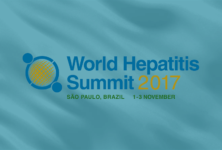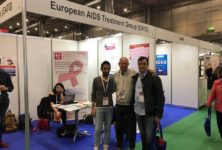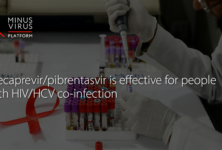Today, the Lancet Commission on Essential Medicines for Universal Health Coverage is launching its report in an event that will be taking place London. The report makes actionable recommendations to make essential medicines a central pillar of the global health agenda, and to translate policies into meaningful and sustainable health gains for populations worldwide. The report discusses five key areas:
- Paying for a basket of essential medicines
- Making medicines affordable
- Ensuring quality of medicines
- Promoting quality medicines
- Developing new and missing medicines
While we would encourage you all to read the full report, we wanted to draw your attention to some of the analysis, conclusions and recommendations that refer specifically to the work of the Medicines Patent Pool.
On page 55, the report indicates that “After 5 years of operation of the MPP, millions of people have benefitted and impressive financial savings have been achieved (panel 20). The Commission concludes that there is great potential for expanding access to other new essential medicines through licensing of patents through patent pooling”.
In addition, the report specifically recommends the creation of an Essential Medicines Patent Pool and indicates that “Such a pool could be hosted and managed by the current MPP”.
The full report is attached for your reference and is also available at the following link: http://www.thelancet.com/journals/lancet/article/PIIS0140-6736(16)31599-9/fulltext
Our statement, issued earlier today, is available at: http://www.medicinespatentpool.org/mpp-statement-lancet-commission-report-on-essential-medicines-for-universal-health-coverage-identifies-positive-role-of-patent-pooling-and-voluntary-licensing/
Extracts from the Report
Ø Page 23: “A systemic response to the challenges of intellectual property barriers is provided by the Medicines Patent Pool (MPP), which is described in more detail in section 5. Patent licences, such as those available from the MPP or certain patent-holding companies, provide a legal means to reduce the negative effects of a patent monopoly on the availability of a generic medicine and lead to greater availability at more affordable prices. Use of a licence might require the payment of a royalty, and is subject to restrictions in terms of geographical scope. Companies making generic medicines under an MPP licence and certain company licences can, nevertheless, supply countries outside of the scope of the licence, provided those countries have issued a compulsory licence or enabled government use of a patent, or such supply does not otherwise infringe on a granted patent in that country.”
Ø Page 52: “Patent pooling supports generic manufacturing: As a direct result of the Global Strategy and Plan of Action on Public Health, Innovation and Intellectual Property of 2008,355 UNITAID established an MPP for HIV medicines in 2010. The MPP initially focused on patents related to HIV medicines to promote low-cost generic production and the development of fixed-dose combinations and paediatric formulations. The MPP has expanded its mandate to cover hepatitis C and tuberculosis. In November, 2015, the MPP signed an agreement with Bristol-Myers Squibb that allows supply of generic daclatasvir in 112 LMICs.32 Separate from the MPP, Gilead Sciences Inc has licensed patents for its hepatitis C virus medicines for use in 101 LMICs.31 Unfortunately, some MICs are excluded from these licences and must continue to rely on TRIPS flexibilities to access low-priced generics (appendix 5). Generics companies that produce hepatitis C virus and HIV medicines under a licence agreement with the MPP and Gilead Sciences Inc are mostly allowed to supply generic product to a country that makes use of TRIPS flexibilities. After 5 years of operation of the MPP, millions of people have benefited and impressive financial savings have been achieved (panel 20). The Commission concludes that there is great potential for expanding access to other new essential medicines through licensing of patents through patent pooling.”
Ø Page 52: “Panel 20: Achievements of the Medicines Patent Pool (MPP) between 2010 and 2015
Patent licences and agreements
- Patent licences signed on 12 priority antiretroviral medicines with six patent holders, and 59 sub-licences with 14 generic manufacturers
- One licence on a treatment for hepatitis C virus infection for 112 low-income and middle-income countries
- One agreement to increase access to treatment of cytomegalovirus retinitis
- One agreement for antiretroviral medicines as nanomedicines, for all 135 low-income and middle-income countries and two high-income countries in Africa
Effect on production and supply
- Generic companies with MPP licences have supplied more than 7 million patient-years of WHO-recommended antiretroviral drugs in 117 countries, including 41 countries that were previously unable to benefit from generic competition for such medicines
- MPP licences enable manufacturing and sale of generic adult antiretroviral medicines to 87–93% of people with HIV in the developing world, which includes all 34 low-income countries and 55–80% of middle-income countries
- MPP sublicensees supplied 4·3 million patient-years of tenofovir disoproxil fumarate in the first 6 months of 2012, shortly after the agreement was reached
Financial savings
- In 2011–12, in Azerbaijan, Belarus, Egypt, El Salvador, Georgia, Iran, Iraq, and Tunisia the price of tenofovir-containing products dropped to a median of 13% of the price before the agreement (2010–11)406
- MPP agreements have led to antiretroviral medicines procurement savings of US$119·6 million between 2010 and 2015
- The total direct global savings generated by the MPP406 are estimated at $2·2 billion by 2028, implying that for every dollar spent, the global community gains $40407”
Ø Page 55: “Pooling patents of new essential medicines promotes universal access to innovation: On the basis of the positive outcomes of the MPP, the Commission concludes that there is a wide scope for patent pooling for other essential medicines (as defined by WHO or national committees). To this end, the current MPP could be expanded into an Essential MPP (or EMPP). This expansion would create an opportunity for companies to license patents for the purpose of creating a competitive generic market of essential medicines, in line with their responsibility to protect and promote human rights. Patents of medicines developed under the new research agreement or new financing mechanisms could also be licensed. The EMPP should use a tiered royalty system to remunerate patent holders and to contribute to R&D expenditure at levels proportionate to the economies of the countries where the medicines are used.
Ø Page 56: “In 2016, GlaxoSmithKline announced that it will not file or enforce patents in LICs, license its patents in LMICs, make its patent landscape more transparent, and commit its future oncology medicine patents to patent pooling. “
Ø Page 56: “Recommendations: The Commission’s analysis shows that challenges of access to new essential medicines are directly associated to the failure of the current R&D system to develop much needed new medicines. The Commission makes the following recommendations for stronger public policies on R&D, including at the international level. (…) 3 The international community must create a general EMPP. Such a pool could be hosted and managed by the current MPP. Companies should license their patents related to essential medicines to the EMPP under a set of conditions. Patents of medicines developed under the new research agreement or any other new financing mechanism could also be licensed through the EMPP. The EMPP should use a tiered royalty system to remunerate the patent holder and to contribute to R&D expenditure.”
Ø Page 59: “Panel 23: Proposed core indicators measuring progress associated with the Commission’s recommendations (…)
Developing missing essential medicines
- Number of licence agreements concerning essential medicines concluded through patent pooling, stratified by in-licence and out-licence
- Number of products produced under an Essential Medicines Patent Pool licence that are authorised by at least one of the following: International Council for Harmonisation or Pharmaceutical Inspection Convention and Pharmaceutical Inspection Cooperation Scheme member, or WHO/UN Prequalification Programme‡ (…)”


 ПОИСК ПО САЙТУ
ПОИСК ПО САЙТУ  поиск по ресурсному центру
поиск по ресурсному центру 



